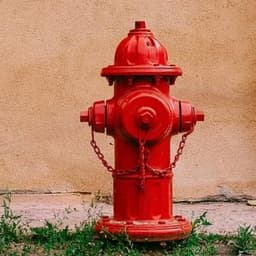Emergency Checklist
Table of Contents
Introduction
Medical
First Aid
Medications
Records
CPR
Home
Pantry
Clothing/blankets
Safe spot
Baby
Tools
Chemicals
Car
Gas
Tires
Trunk
Communication
Cell phone
Land-line
AM/FM radio
List of important numbers
Weather radio/police scanner
Personal items
Toilet paper
Feminine products
Dental
Hand sanitizer
Identification
Money
Download or Print this Emergency Checklist
Get a printable version of this checklist in your preferred format: PDF, Word, Excel, or print directly from your browser.
Details
In case of an emergency, you need to have a game-plan. Whether the emergency means you are cut off from power and access to outside sources of food and water, or are being forced to leave your home due to fire or flood, there are essentials that you should already have assembled.
Tips
- Think ahead and have items such as insurance cards and medical information handy in case of injury or sudden illness.
- Always ensure that all prescriptions are kept filled in case you are unable to reach a pharmacy during an emergency.
- Emergency kits should be kept freshly stocked and labeled, and located in a place known to all members of the household.
- Copies of important documents should be kept off site, such as in a safe deposit box, or at least in a fireproof safe in the house.
- Make sure all adults know how to turn off the water, gas and electricity at main switches. (If natural gas is turned off, have a professional come turn it back on.)
- Make sure all children know how to dial 9-1-1 to get emergency assistance, and show them how to make long-distance telephone calls (Having an out of state contact in case of major emergency is a good plan - local telephone systems may be overloaded in case of local emergency.)
- Have a pre-arranged meeting place in case of separation, or if all family members are not home when an emergency occurs. Your family should have a clearly defined escape plan as well; in case of fire, a way to get out from upper stories should already be in place and fire drills rehearsed to ensure everyone knows how to get out safely.
- Conduct drills for natural disasters such as earthquake, hurricane or tornado. Keep blankets and slippers in a shed or car trunk in case you are forced out of your house at night in inclement weather.
Who it's for
This Emergency Checklist is for teams that want consistent execution, less rework, and clear ownership.
- Standardize quality - run the same Emergency steps every time, regardless of who executes
- Save time - reuse a proven Emergency workflow instead of rebuilding processes from scratch
- Improve accountability - assign owners and see what's done vs. what's pending
- Onboard faster - use the Emergency checklist as the SOP and training guide
- Coordinate across roles - handoffs are clear and everyone works from the same source of truth
How to use it
How to use this Emergency Checklist:
- Start by saving it - save as a Template if you'll reuse it, or as a Checklist if it's a one-off project.
- Customize it once for your workflow - remove what doesn't apply and add your team-specific steps.
- Assign ownership and execute - set owners/due dates where needed and track completion as work happens.
- Reuse without rebuilding - when Emergency comes up again, start from your saved version and run it with clear ownership.

